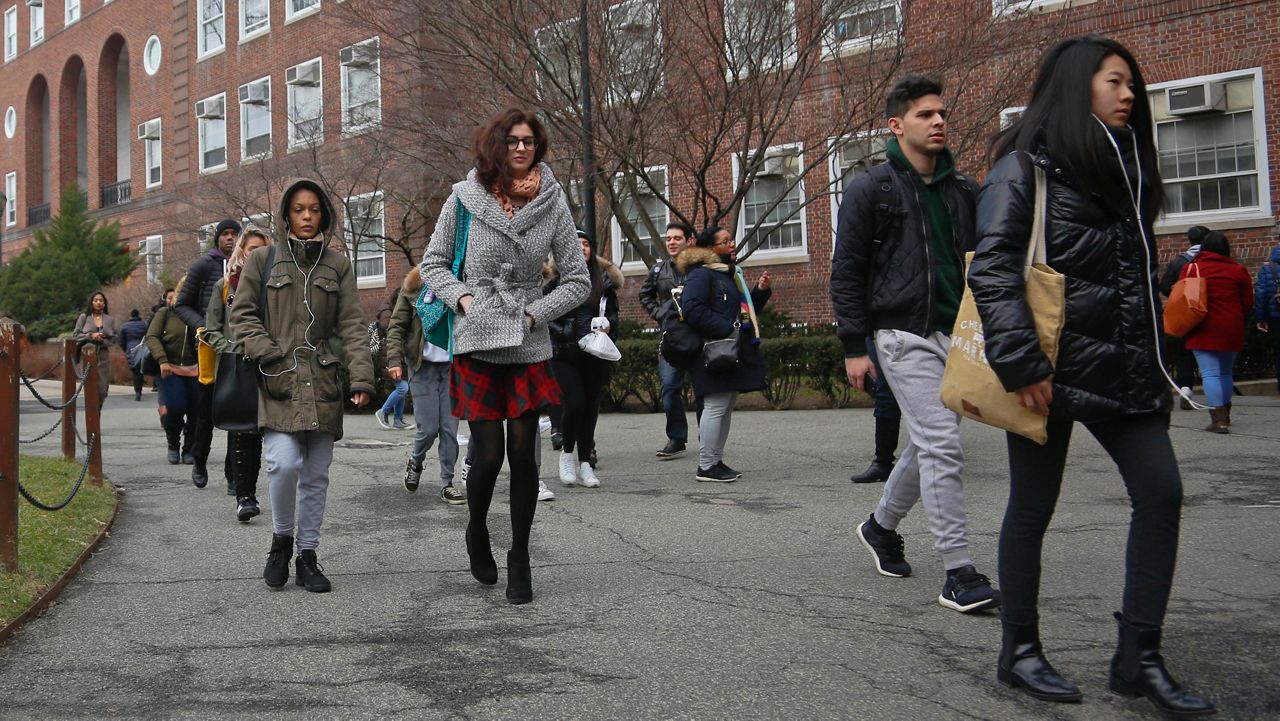KENTUCKY — President Joe Biden this week unveiled his plan to forgive $10,000 in student loans for borrowers in the U.S. making less than $125,000 per year, or $20,000 for Pell Grant recipients, fulfilling a long-delayed campaign promise pushed for by Democrats and advocates for more than a year.
In the Commonwealth, that plan will greatly impact the over 600,000 Kentuckians with student loan debt, according to data from the Kentucky Center for Economic Policy.
What You Need To Know
- Over 600,000 Kentuckians with student loan debt could see relief from President Joe Biden's forgiveness plan
- Biden unveiled his plan to forgive $10,000 in student loans for borrowers in the U.S. making less than $125,000 per year, or $20,000 for Pell Grant recipients
- Over 209,400 Kentucky borrowers owe $10,000 or less and would see their full balance wiped away
- In addition to the canceled loans, Biden extended the student loan repayment pause through the end of 2022
Roughly 616,000 Kentuckians hold some amount of student loan debt, with the average being $33,300. Over 209,400 borrowers owe $10,000 or less, according to Kentucky Center for Economic Policy analysis. Those people would have their debt fully forgiven under Joe Biden's plan.
Another 406,200 borrowers will see a portion of their debt wiped away, but the Kentucky Center for Economic Policy found that doesn't consider individuals excluded due to the $125,000 annual income cap.
Two thirds of Kentucky borrowers are between 25 and 49 years old, but the average balance is highest for the 35 to 49 age group. There are also some 20,000 Kentuckians at or near retirement age still holding federal student loan debt, the Kentucky Center for Economic Policy found.
In addition to the canceled loans, Biden extended the student loan repayment pause through the end of 2022, adding that it'd be the final extension he makes.
The White House also announced another key part of their loan relief effort that could aid future borrowers: reforms to the income-driven repayment plan system that would mean people making under a certain amount of money per year would end up paying less per month toward their undergraduate loans.
The changes would cap the monthly payment amount at 5% of a borrower's income, plus cover any unpaid monthly interest so the balance doesn't increase. Anyone who borrowed less than $12,000 will see the remainder of their loans forgiven after ten years, as long as they make payments toward the plan.
The cost of the $10K forgiveness plan would reach close to $330 billion over ten years, according to a model from the University of Pennsylvania’s Wharton business school, not counting the additional money for Pell Grant recipients.
Republicans have called it an unfair burden on taxpayers who didn’t go to college or don’t have loans and claimed that will fuel inflation.
"President Biden's student loan socialism is a slap in the face to working Americans who sacrificed to pay their debt, every graduate who paid their debt, and every American who chose a different career path or volunteered to serve in our Armed Forces in order to avoid taking on debt," Senate Minority Leader Mitch McConnell wrote in a statement. "This policy is astonishingly unfair."
Biden responded to Republican criticism of his loan forgiveness plan, saying that while he understands "not everything I'm announcing today is going to make everybody happy," he said that he finds it "interesting how some of my Republican friends who voted for [the 2017] tax cuts ... think we shouldn’t be helping these folks."
When asked later if the action was unfair to people who have paid off their loans or did not take out loans, Biden doubled down: "Is it fair to people who, in fact, do not own multi-billion-dollar businesses if they see one of these guys getting all the tax breaks? Is that fair? What do you think?"
Political Digital Journalist Austin Landis contributed to this report.



